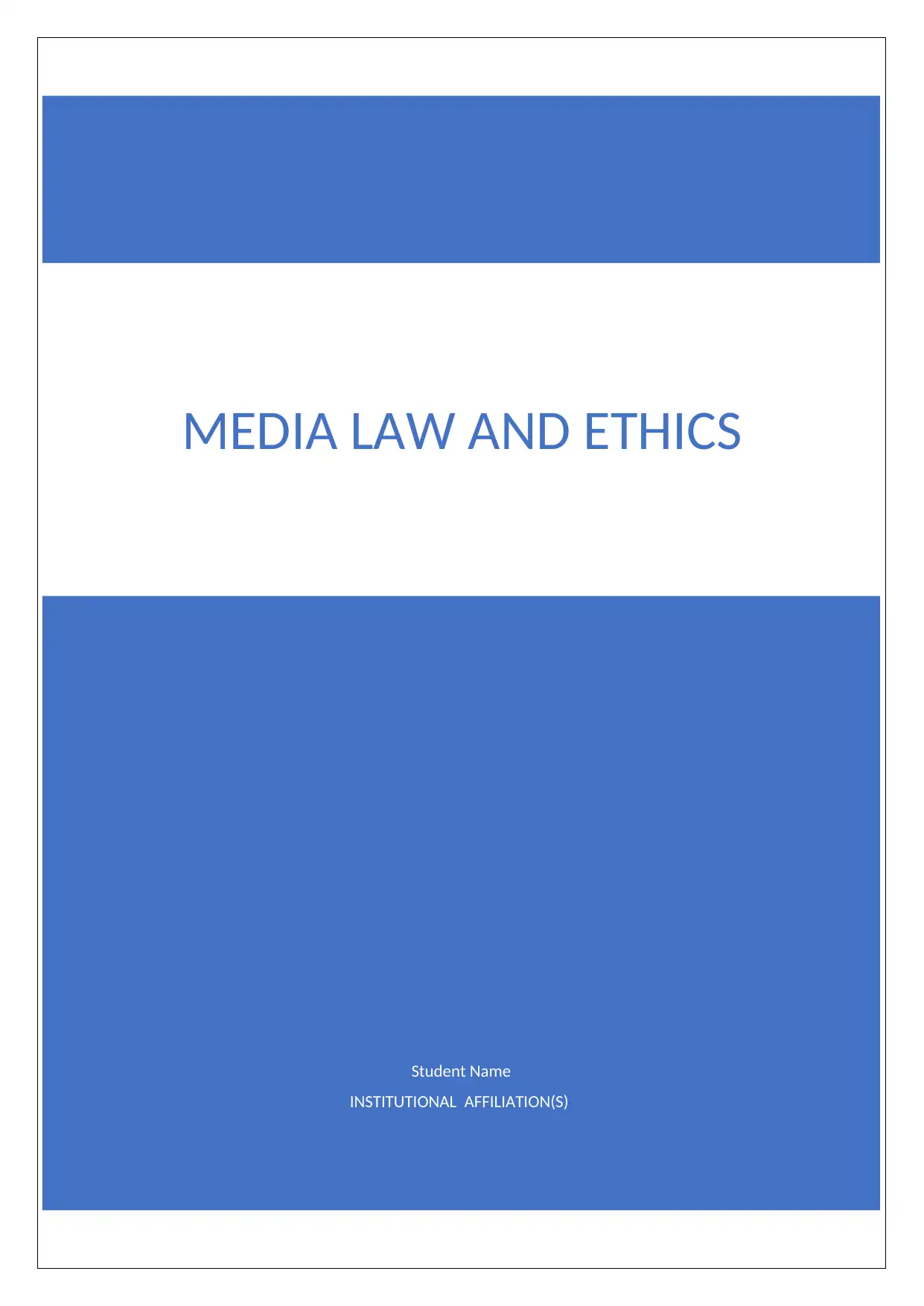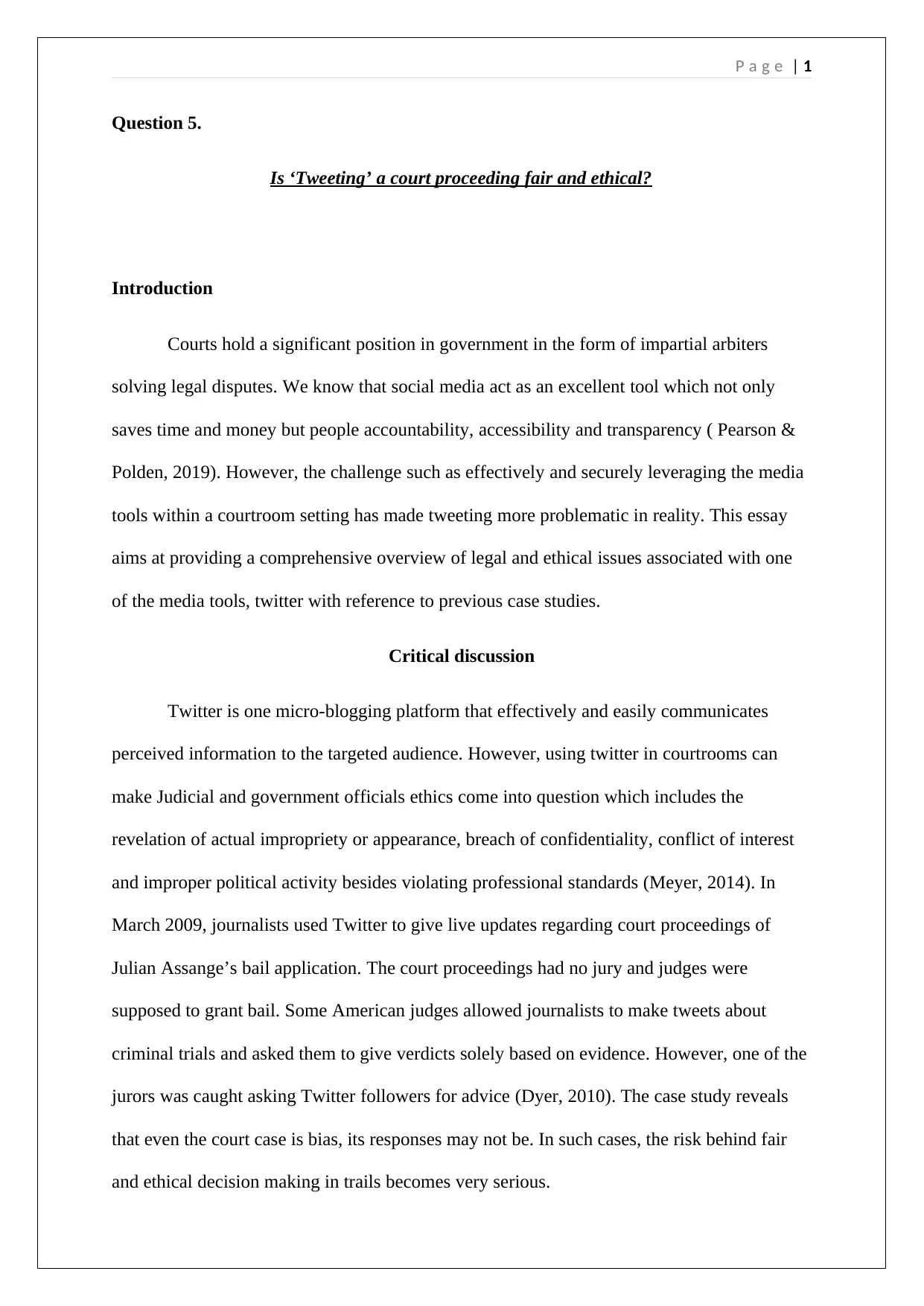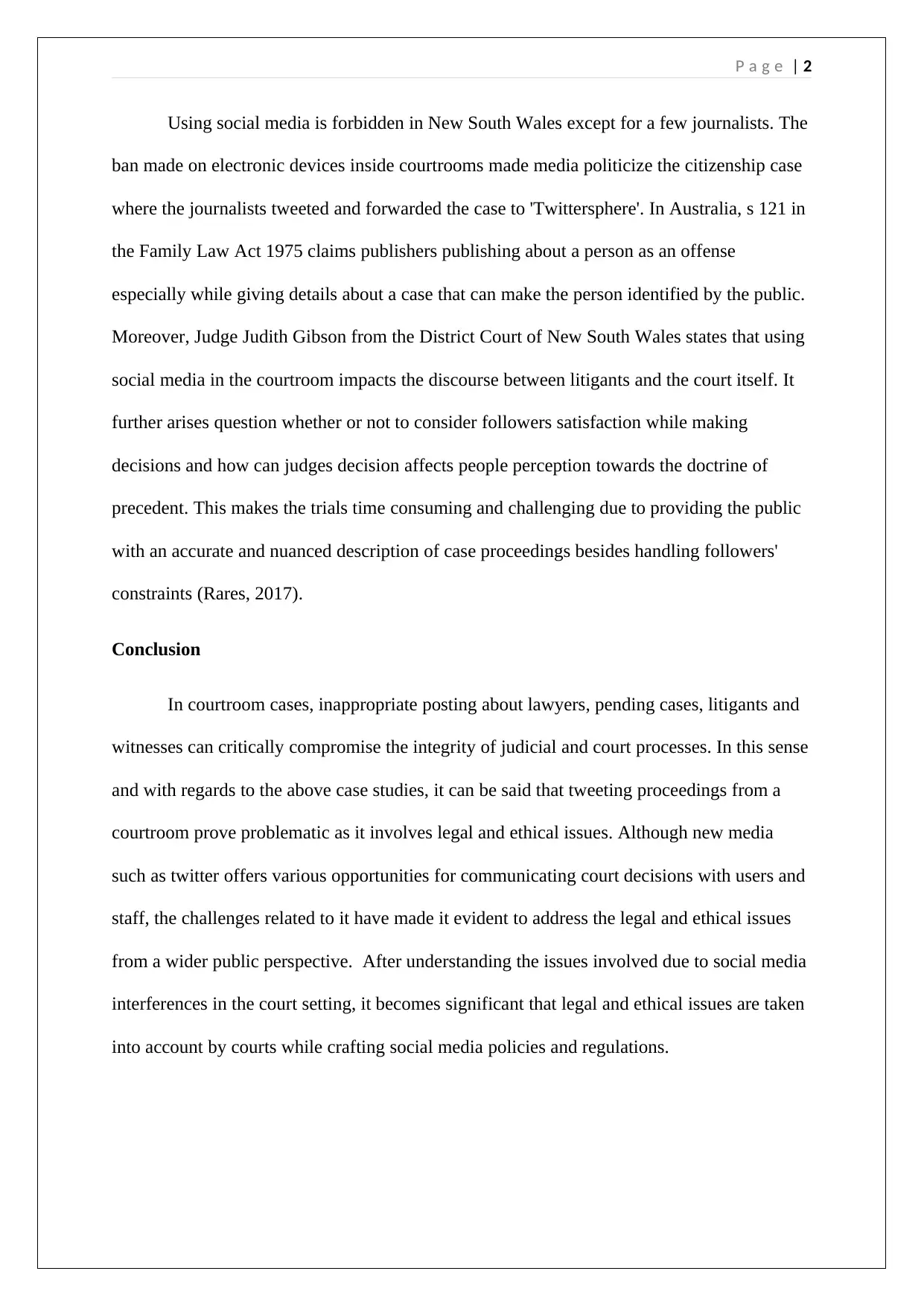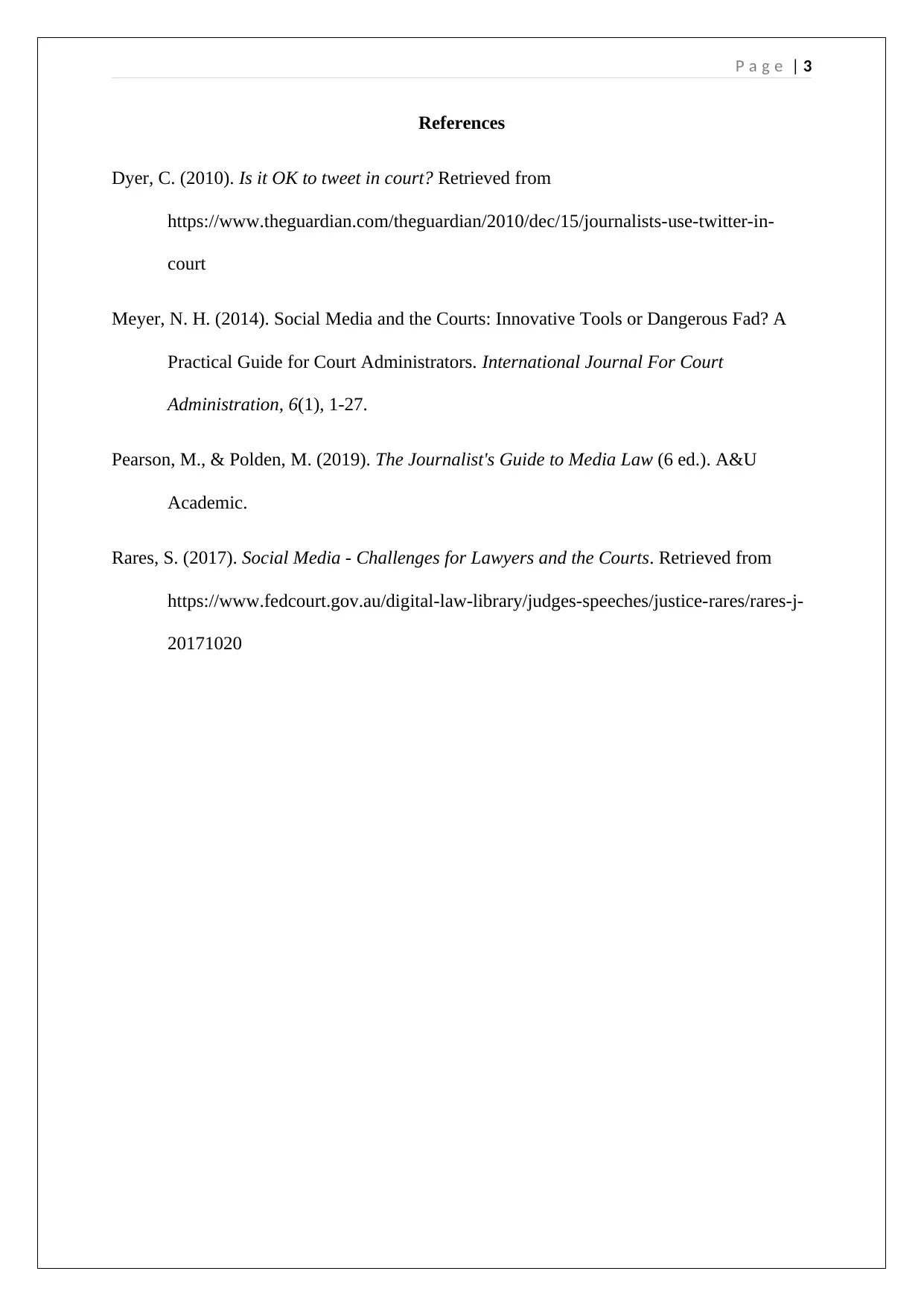Media Law and Ethics: Tweeting in Court Proceedings
VerifiedAdded on 2022/09/09
|4
|740
|15
Essay
AI Summary
This essay critically analyzes the legal and ethical implications of using Twitter in court proceedings. It begins by highlighting the role of courts as impartial arbiters and the potential benefits of social media for transparency and accessibility. However, it emphasizes the challenges of integrating media tools within courtrooms, particularly regarding issues like confidentiality, conflicts of interest, and professional standards. The essay references case studies, such as the Julian Assange bail application, where journalists used Twitter to provide live updates, and discusses instances where jurors sought advice from Twitter followers, raising questions about the fairness of decision-making. It also explores the restrictions imposed on social media use in courtrooms, citing the New South Wales ban on electronic devices and the Australian Family Law Act, which addresses publishing details that could identify individuals. The essay further examines the impact of social media on court discourse and the challenges of providing accurate information to the public while managing follower expectations. The conclusion emphasizes the potential for compromising the integrity of judicial processes and the need for courts to develop social media policies that address the legal and ethical issues involved.
1 out of 4








![[object Object]](/_next/static/media/star-bottom.7253800d.svg)